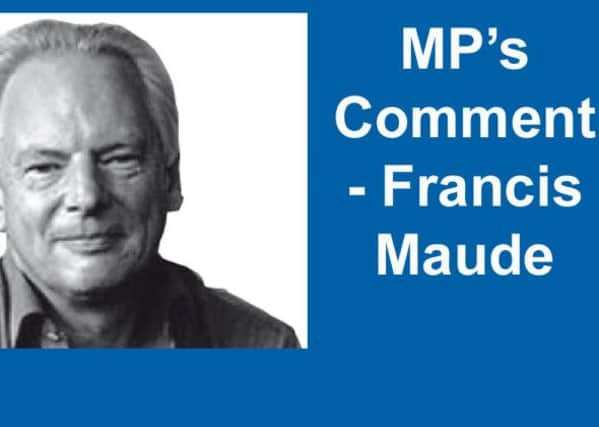Francis Maude: Successful mutuals are way of the future


Public services everywhere are under pressure. Demand is rising: we’re living longer, which is great, but means that the quantity of public services needed will continue to increase. Expectations of the quality of services are rising too. And no government anywhere has money to throw around. So how do we deliver more for less?
The old view was that there were only two ways for services to be delivered. Either they were delivered in-house by the public sector - the council, the NHS, or a government department - or they were outsourced to a private sector commercial company. It was a very stark binary choice.
Advertisement
Hide AdAdvertisement
Hide AdThat’s changed. We now commission services from lots of different providers – social enterprises, charities and voluntary organisations as well as commercial companies. But in addition we’ve now support groups of public sector workers who choose to take themselves out of the public sector and deliver the service under contract. These are the new public sector mutuals.
So far there are over 100 of them. They come from all kinds of sectors, but the largest number come from the health and social care sectors. They are owned and run by the staff themselves.
Most of the mutuals have chosen to be social enterprises, where the profit is invested back into the business. They have been extraordinarily successful. The contract will generally involve a progressive reduction in the cost to the taxpayer, so they save money. The quality of the work typically improves sharply, and staff motivation rises and turnover falls. It’s driven by the combination of entrepreneurial leadership, commercial discipline, staff who are empowered by being released from bureaucratic constraints, coupled with a strong public service ethos.
My favourite example is Inclusion Healthcare. It was a small GP practice in Leicester which looked after homeless people. It spun out of the NHS in 2011, with seven staff. Today it has nearly 40, and has trebled its turnover. It has contracts from different parts of the NHS, the Police Commissioner, and a drug rehabilitation contract. So they now provide integrated services to the same group of patients, much more cheaply but more importantly more effectively.
Advertisement
Hide AdAdvertisement
Hide AdThey recount how a patient needed urgent hospital treatment for leg ulcers, to avoid an otherwise inevitable amputation. He wouldn’t be separated from his dog, so Inclusion paid the kennel fees.
They say they could never have done this as part of the NHS. The result? Massive saving of public money for rehabilitation and disability benefits – but more importantly a life hugely improved.
There are many more examples. That’s why I believe this really can be the way of the future.